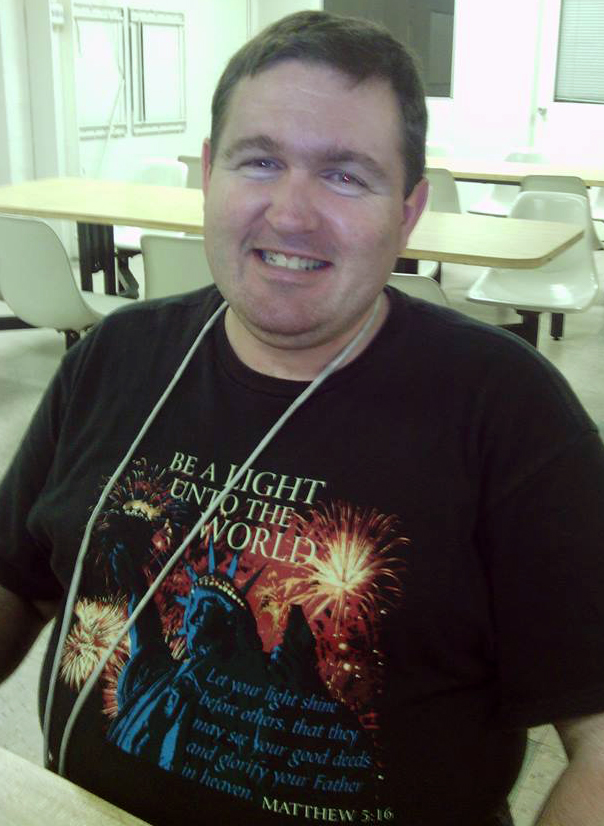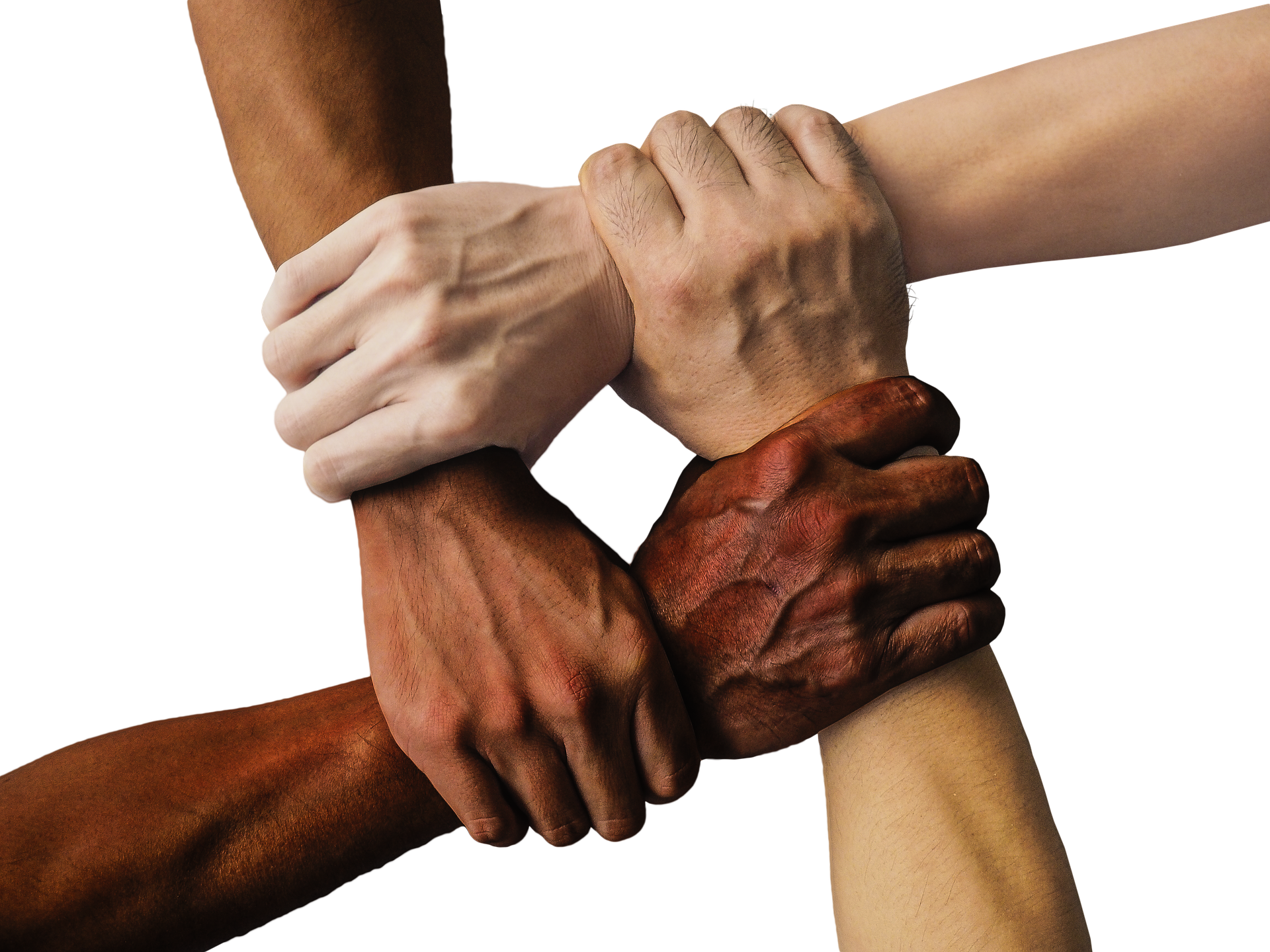
When Adults with Autism Face Difficult Life Change: 16 Supportive Actions
By Jackie M. Marquette
Delivering wide attention to the public about the diverse needs of individuals living with autism and their families is the purpose of Autism Awareness month. There are many relevant topics to highlight this month. Yet, I want to address a topic that reflects what parents face, including myself, who have an adult child with autism. What happens when tragic events hit, such as parental illness, economic hardship or the death of a parent? These difficult situations may appear suddenly in a family or emerge slowly spiraling out of control. Please keep reading, I promise this piece has an insightful and uplifting message.

Tim
I offer the example of Tim, an amazing man with autism who is my friend. I am sharing with you how he moved through a state of significant loss into a place of contentment because of the acceptance of others and the use of his God-given strengths. The journey led him to live the life he knows today as an outstanding member in his job, church, and community.
Tim is a 37 year old man on the spectrum. Tim, with his step brother Steven, and Trent, my son, were coworkers at Meijer INC for nine years. Our families became friends because we had similar concerns and dreams for their purpose, independence, and safety in life. I have fond memories of our families spending sociable times together, enjoying dining out on a regular basis and sharing the latest stories about our sons. Most importantly, we shared our dreams of the men they might become and the possibilities for them to live the good life after we die. Truly, we didn’t have it figured out.
Unfortunately, Tim was hit with tragic events one after another, when four close family members died within 5 years. His mother died of a lingering illness at the young age of 54 in 2009. Then in 2010 his grandfather died. In 2011 Tim moved back to his home town to live with his grandmother. In 2013, she moved into Senior Care. Then His brother James died of a heart attack at a young age of 30 in 2013. Shortly thereafter, Tim’s step dad had a stroke and died.
My heart was saddened by all of these tragic events thrown at Tim. I wanted to help, but then living in another state, it wasn’t workable. I wondered how he coped. I also questioned myself: how would I cope under similar circumstances? I realized we are never prepared to face such tragedies.
Tim received services by a Hopewell Center in 2013: residential support to live in his own apartment and a part time job at MillSteel where he provided janitorial and custodial services. His employer proudly shared how Tim drives a $20,000 sweeper machine to clean the floors. Tim still has this job 3 years later. On the surface these outcomes provided Tim with purpose, a safe place to live, and autonomy. (A video produced by Hopewell Center, which can be seen here, highlights Tim at work. Scroll forward to 3:30 to see Tim at work)
Yet below the surface, Tim needed emotional supports and social connections with those who cared about his well-being. To be connected to others or a group of people is one of our basic human needs.
The dreams of Tim’s parents was that he have a life with meaning and purpose, have predictability with structure, social connections that promote belonging and positive experiences, and to feel safe among others. These may sound like pipe dreams to many, but pipe dreams can really count for people with autism and those with different brains and abilities.
Community members from a church saw the true essence of Tim. Because of those involved, Tim found a place of acceptance among members of a caring church, Crossroads United Methodist Church. The ‘minister’s wife’, as Tim says, included him in assisting her in church activities which provided an opportunity to contribute his best strengths. Tim sings in the choir, plays the organ, is an usher and serves communion once a month. Additionally, Tim participates enthusiastically in church missions to help local disadvantaged persons in the community. He volunteers once a month serving the homeless at Community Cafe. Lastly, at Bethany Point Nursing Home, Tim plays the piano for the residents.
I think about his parents often and wish they could see how well he is doing. I recall the past days with Tim’s parents and the stories they shared about his expression of compassion to others. They spoke about how proud they were of Tim. One story they shared frequently happened on his job at Meijer. Tim would offer assistance to a young mother with a crying baby trying to get her groceries and small children out to the car. Tim often held the baby or attended to the children. Also, Tim was most dependable in attendance at work refusing to stay home even when he was too sick to work.
Tim clearly has emotional strengths that were valued in the work place. Perhaps it was those same emotional strengths that pulled him through the tragic events he faced in life.
Our family has visited Tim, but we live in a nearby state, which makes it difficult to physically visit consistently. Fortunately, Tim and I talk on the phone often. I love hearing from him. He calls me frequently and I listen. I ask him about the things happening in his life, what events are coming up that he looks forward to. I also ask about any new opportunities he has to sing or play the organ. I make myself available to hear Tim share any thing new going on in his life, work, and/or any troubles or problems he must solve. When he opens up, I listen. When he talks about his childhood days and the loving memories of his mother and brother, I listen intently. I don’t take these conversations for granted, because I know they are sacred. The best I can give to Tim is my time, to listen with my whole heart, and if I can, offer a perspective, a view point, or a next step to consider.
I made a list of actions for myself to prepare for sudden difficult or tragic sudden events. I have to admit this task was most difficult for me. I also use this list in my work with individuals with autism.
For many who have autism, a subtle change may be difficult to manage, but when the change is sudden (i.e, parental illness or death), it can lead the individual spiraling downward into severe regression or depression. These times can be frightening, causing the individual to feel abandoned and uncertain about how to go on living life.

SUPPORTIVE ACTIONS
- Offer innovative supports to meet emotional needs. On the surface there is a significant need for adults to have access to supports such as residential, therapy, and employment. Underneath the surface there is an equally important need for innovative supports to address the grieving individual’s emotional needs. He or she may not know how to ask for this kind of assistance, but relies upon people to understand and reach out in love and compassion.
- Be empathetic and compassionate —A person suffering loss needs someone to recognize their despair and their basic human right for emotional supports. A person in crisis needs someone to be empathetic and compassionate.
- Become an ‘empathic supporter’. To those who want to learn how to assist, I call these amazing people ‘empathic supporters’. ‘Empathic supporters’ can be anyone, i.e., a friend, a church member, professional, an educator, or employer.
- Recognize after a tragic event occurs, the ‘previous normal’ has been dissolved. While this may be extremely painful to the individual, we must help him/her gently recognize a part of his life is over. We need to help the individual envision a ‘new normal’. The ‘new normal’ doesn’t just happen, it doesn’t happen quickly, and it only happens with caring individuals. ‘Empathic supporters’ devote their efforts by creating a ‘new normal’ by, supporting, and nurturing the individual as he walks toward ‘a new normal’.
- Guide individual through emotional adaptation into a ‘new safe normal’. During difficult times, it is all about gently guiding one through emotional adaptation into a ‘new safe normal’. Creating predictable activities, purposeful settings with people to whom he can trust is a necessary priority. ‘Empathic supporters’ may also be a support or a guide to guardians or people left to make decisions about next steps to manage emotional despair and move toward contentment in a ‘new normal’. Individuals and their families need to know they can lean on ‘empathic supporters’. We have been fortunate to have empathic supporters in my son’s life.
- Encourage and engage individuals in self expression about their experiences. I found using the explanatory style helpful. Assist individuals with autism or who those with Asperger’s to see possibilities for adaptation or pathways to reach their goals, the explanatory style can help. See link for practical information. https://www.verywell.com/about-explanatory-styles-3145110
- Use the tool of appreciation. Support and guide the individual to notice and appreciate the good things in his life. I use this with my son as well. While this may not be easy during loss and grief, there is always something to find that one can appreciate. This process is called Savouring, which encourages one to slow down and pay attention to their senses. An example of Savouring may be to notice how good your body feels after a walk in the park. To read more about Savouring go to: http://www.thepositivepsychologypeople.com/the-art-of-positive-savouring/
- Develop self emotional awareness. The Self Emotional Awareness© (SEA) model may assist. SEA© is an approach and process to prepare an individual with ASD or related disability for best adaptation to a new setting or event. All emotions are recognized, such as anxiety about the event. Equally important, positive emotions are emphasized and logical steps through the process are intended to provide prediction and expectations so the individual becomes willing and ready to try. The intention in writing a SEA© Story is to promote the understanding, purpose, and self-emotional awareness of the individual’s participation and adaptation to an event, community setting or family outings. http://marquettestrengthsindex.com/wp/wp-content/uploads/Increasing-Adaptations-Dr.JackieMarquette.pdf
- Become an ‘open minder’. For individuals and their families who seek access to community settings, we rely on the people who are ‘open minders’. This may take the form of people in numerous public settings. Some include retail setting, or community settings such as a park, or a church, etc. ‘Open minders’ offer to assist when they see an individual with autism having a difficult time, such as waiting in line, etc.
- Become a ‘hope instiller’. For individuals with goals or dreams to have a job or go to college we need people who are ‘hope instillers’.
- Become a ‘guide extender’. For individuals who need support to pursue a new adventure such as, certification or college, or to manage daily living we need ‘guide extenders’ to extend their time to listen and guide.
- Become an ‘empathy tuner’. For all the people who have a challenge in managing a difficult setting, such as medical or dental, we rely upon ‘empathy tuners’ who will alter the setting or situation to accommodate the individual.
- Be a ‘bridge supporter’. For those who wish to cross the flood of a difficult tragic life experience, i.e., a death of a close family member, we need ‘bridge supporters’. That is, people who will support and assist the individual to walk across the bridge through a difficult circumstance.
- Become a ‘task accommodator’. Each one has unique preferences and must know these preferences because preferences aid one in emotional adaptation. For example, while executive functioning can be enhanced in an individual using a checklist, this technique can also promote emotional awareness and capability as well. Simple techniques such as a daily checklist can be comforting and instill predictability promoting adaptation to meaningful activities or tasks. Individuals rely on employers or coworker who will be ‘task accommodators’.
- Become a ‘pace holder’. For individuals who enjoy doing a specific structured task for a job, hobby or other activity yet, rely upon a logical easy going pace, we need ‘pace holders’. An individual may be capable of managing a task, yet they need employers or coworkers to alter the requirements or standards in order to accommodate the individual’s ability to do the task at his own pace.
- Recognize immense possibilities. Search for opportunities for individuals with autism to use their strengths and to offer value to the world’s needs. Persons with autism are not broken or doomed. A must read book written by Barry Prizant can change our perceptions about autism. His book is Uniquely Human.

In conclusion, individuals with autism have many strengths, but they rely on acceptance and sometimes guidance to pursue opportunities. They especially need ‘empathic supporters’ during times of change or loss.
Individuals with autism and we, their parents, must keep dreaming to make our dreams a reality. The dreams of Tim’s parents was that he have a life with meaning and purpose, have predictability with structure, social connections that promote belonging and positive experiences, and to feel safe among others. These may sound like pipe dreams to many, but pipe dreams can really count for people with autism and those with different brains and abilities.
Jackie M. Marquette
www.marquettestrengthsindex.com
Jackie Marquette Ph.D. is dedicated to bringing innovative and unique solution based career tools and leadership to organizations and individuals with ASD and diverse challenges. Dr. Jackie provides consultation, writes, and conducts her own research. She has a son with autism in his 30s who is an accomplished award winning artist. Visit:
www.marquettestrengthsindex.com




